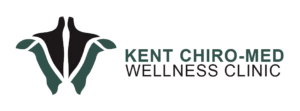A recent update from the British Medical Acupuncture Society (August 2016) outlined clinical evidences that demonstrate which conditions respond usually best to acupuncture. Here are the statements:
1. For chronic low back pain, acupuncture is more effective for pain relief and functional improvement immediately after treatment and in the short term.
2. Acupuncture provides additional benefit to the treatment of acute migraine attacks and to routine chiropractic maintenance for migraines in general.
3. Acupuncture could be a valuable non-pharmacological tool in patients with frequent episodic or chronic tension-type headaches.
4. There is moderate evidence that acupuncture relieves pain in chronic mechanical neck disorders.
5. There is short term benefit on pain and function restoration when acupuncture is used to relieve shoulder pain.
6. There is evidence that shows superior efficacy of acupuncture over sham in chronic pain and effectiveness over non-acupuncture controls.
7. Trials allowing electrical acupuncture stimulation have shown a significantly stronger effect of acupuncture compared with sham.
8. We know understand the anti-inflammatory role of thevagus nerve* when stimulated through acupuncture point, contributing to an anti-TNF** effect on the peripheral acetylcholine*** release. Acupuncture can modulate an anti-TNF effect and reduce pain.
To read the full paper visit: http://www.medical-acupuncture.co.uk/Portals/0/Evidence%20Aug%202016.pdf
LEGEND:
*Vagus Nerve: an important cranial nerve that supply the heart, lungs, upper digestive tract, and other organs of the chest and abdomen
**TNF: a cell signaling protein (cytokine) involved in systemic inflammation and is one of the cytokines that make up the acute phase reaction
***Acetylcholine: a chemical messenger that causes our skeletal muscles to contract and regulates our endocrine (hormonal) system
